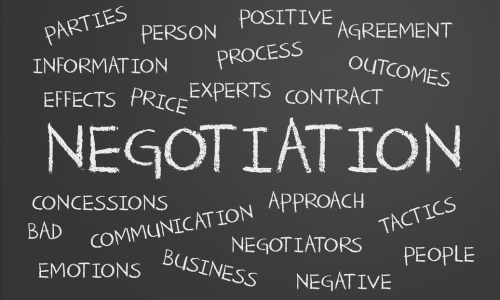
Negotiation skills are a critical asset in various aspects of life, from business deals to interpersonal relationships. Master negotiators excel at creating win-win agreements while fostering valuable relationships. They strike a balance between assertiveness and empathy to resolve differences effectively. Whether you’re finalizing contracts, securing resources, or forming strategic partnerships, strong negotiation capabilities provide a powerful edge. In this article, we will explore best practices for negotiating strategically, tools for overcoming negotiation obstacles, and the art of forging partnerships through collaborative win-win approaches. Let’s sharpen your negotiation skills.
Negotiation Preparation

Thorough preparation is the foundation of successful negotiation. Before engaging in any negotiation, take the following steps:
- Know Your BATNA: BATNA stands for Best Alternative to Negotiated Agreement. It represents your fallback option if negotiations reach an impasse. Understanding your BATNA defines the lowest acceptable terms you are willing to accept.
- Learn Your Counterparty: Conduct thorough research on the background, priorities, constraints, and past deals of the party you are negotiating with. Seek to identify possible mutual interests and areas of alignment.
- Determine Must-Haves: Clearly define your absolute minimum requirements for negotiation. Differentiate between aspects you are willing to compromise on and dealbreakers that are non-negotiable.
- Set Targets: Establish clear target outcomes for the negotiation, including an ideal target, an acceptable target, and the lowest acceptable outcome you are willing to settle for. This helps you stay realistic and focused.
- Anticipate Questions: Anticipate the questions and concerns that your counterpart may raise during the negotiation. Prepare well-thought-out responses that reassure and address their potential queries.
- Gather Evidence: Compile relevant data, benchmarks, research findings, and references that support your positions and arguments during the negotiation.
- Strategize Communication: Plan your communication approach carefully. Define the tone you want to convey, key talking points, and your planned responses to various scenarios. Practice active listening techniques to ensure you fully understand your counterpart’s perspective.
- Allot Time: Avoid rushed negotiation sessions by allowing sufficient time for the process. Pressure from looming deadlines can lead to hasty missteps.
Thorough groundwork will empower you to negotiate confidently, armed with facts and a clear strategy.
Win-Win Negotiation Techniques

Effective negotiators strive to create outcomes where both parties benefit, resulting in a win-win situation. To achieve this, employ the following techniques:
- Finding Common Ground: Identify shared goals, priorities, and concerns that both parties can agree on. Highlight the potential for cooperation and collaboration.
- Asking Questions: Use open-ended questions to uncover your counterpart’s true needs and interests. Listen attentively and reflect back on what you hear to demonstrate understanding.
- Avoiding Ultimatums: Replace hardline demands with collaborative problem-solving approaches. Encourage a spirit of working together to find solutions.
- Considering Concessions: Determine which concessions are acceptable to you while still meeting your key needs. Be flexible in your approach.
- Bridging Differences: Offer creative solutions that reconcile opposing desired outcomes. Look for alternative options or a “third way” that satisfies both parties.
- Securing Mutual Gains: Structure agreements in a way that aligns incentives, ensuring that both sides stand to gain through cooperation and fulfilment of the agreement.
- Developing Goodwill: Build rapport with your counterpart. Demonstrate your intention to create value, rather than simply claiming it. Trust is a fundamental component of effective problem-solving.
- Isolating from Egos: Frame proposals neutrally and objectively. Avoid personal attacks or confrontations. Focus on discussing the merits of the negotiation rather than personal attributes.
Optimal negotiation outcomes satisfy the needs and objectives of all parties involved, contributing to sustainable and positive business relationships.
Overcoming Negotiation Roadblocks

Negotiations often encounter predictable obstacles that can derail progress. Skillfully navigate these challenges by employing the following strategies:
- Reading Body Language: Pay close attention to nonverbal cues that may signal discomfort or unease in your counterpart. If you detect signs of discomfort, slow down the negotiation and seek to reassure the other party.
- Reframing: If negotiations become emotionally charged, reframe the conversation objectively. Look beyond the surface emotions to identify the root concerns that underlie any anger or frustration.
- Finding Tradeoffs: When demands seem incompatible, explore potential tradeoffs or alternative solutions that satisfy both parties. Seek to find a middle ground or a solution that meets the core needs of each side.
- Taking Breaks: If tensions escalate during negotiations, suggest taking a break to allow both parties to reset their composure and gain perspective before resuming discussions.
- Building Reciprocity: Encourage quid pro quo exchanges to ensure that neither party feels exploited or unfairly treated. Look for opportunities to move forward simultaneously.
- Neutralizing Threats: Maintain a credible and non-hostile stance if faced with intimidation or threats during negotiations. Avoid reacting aggressively and instead respond calmly and professionally.
- Asking Calibrated Questions: Probe the firmness of your counterpart’s positions by asking calibrated questions. Seek to understand the level of flexibility in their stance and explore potential areas for compromise.
- Easing Tensions with Humor: Humor can be a valuable tool to relieve tension during negotiations. Using light-hearted humour can help relax the atmosphere, especially when addressing sensitive issues.
The ability to navigate obstacles while aligning interests and finding creative solutions is essential for achieving successful negotiation outcomes.
Strategic Partnership Development

In certain situations, collaborative partnerships can be more valuable than traditional negotiations. The development of strategic partnerships requires careful consideration and planning:
- Common Vision: Ensure that both partners share a common vision, values, and working styles. Highlight the potential for win-win outcomes and alignment of objectives.
- Complementary Capabilities: Assess whether the potential partners provide complementary capabilities or resources that each other lacks. Identify potential synergies that can be leveraged for mutual benefit.
- Relationship Investment: Building trust and familiarity is crucial in strategic partnerships. Encourage frequent interaction and communication to strengthen the relationship over time.
- Clear Expectations: Codify mutual objectives, responsibilities, and commitments in a transparent and formalized manner. Ensure that both parties have a clear understanding of their roles and obligations.
- Ongoing Coordination: Regularly touch base with your strategic partners to align efforts, exchange ideas, and address any issues or concerns that may arise. Communication is key to maintaining a successful partnership.
- Performance Tracking: Utilize joint metrics and milestones to gauge progress and measure the success of the partnership. Celebrate shared achievements and milestones.
- Win-Win Mindset: Both partners should approach the partnership with a win-win mindset, avoiding self-centred actions and assumptions. Assume good intent and take a long-term perspective.
When carefully crafted, strategic partnerships can lead to breakthrough innovations, mutual growth, and the creation of greater value together.
Master negotiators are adept at advancing their interests while creating widespread benefits and building enduring relationships. They employ empathetic listening, uncover mutually beneficial trades, and transform shared interests into productive agreements and partnerships that withstand the test of time. Developing these negotiation skills is essential for excelling in high-stakes situations and fostering successful outcomes.
We’ve unpacked a lot today at Biz Step Ladder, and now it’s your turn to add to the dialogue. Do you have insights or experiences that could expand on what we’ve discussed? Perhaps you’ve identified an angle we haven’t covered. Jump into the conversation below with your comments and let’s continue the learning journey together. Your input is not just welcome—it’s a vital part of our community’s growth. So, what are your thoughts? Share them below and let’s enrich our business wisdom collectively!
Discover related content by exploring Starting a business, common pitfalls, and resources for new entrepreneurs.





